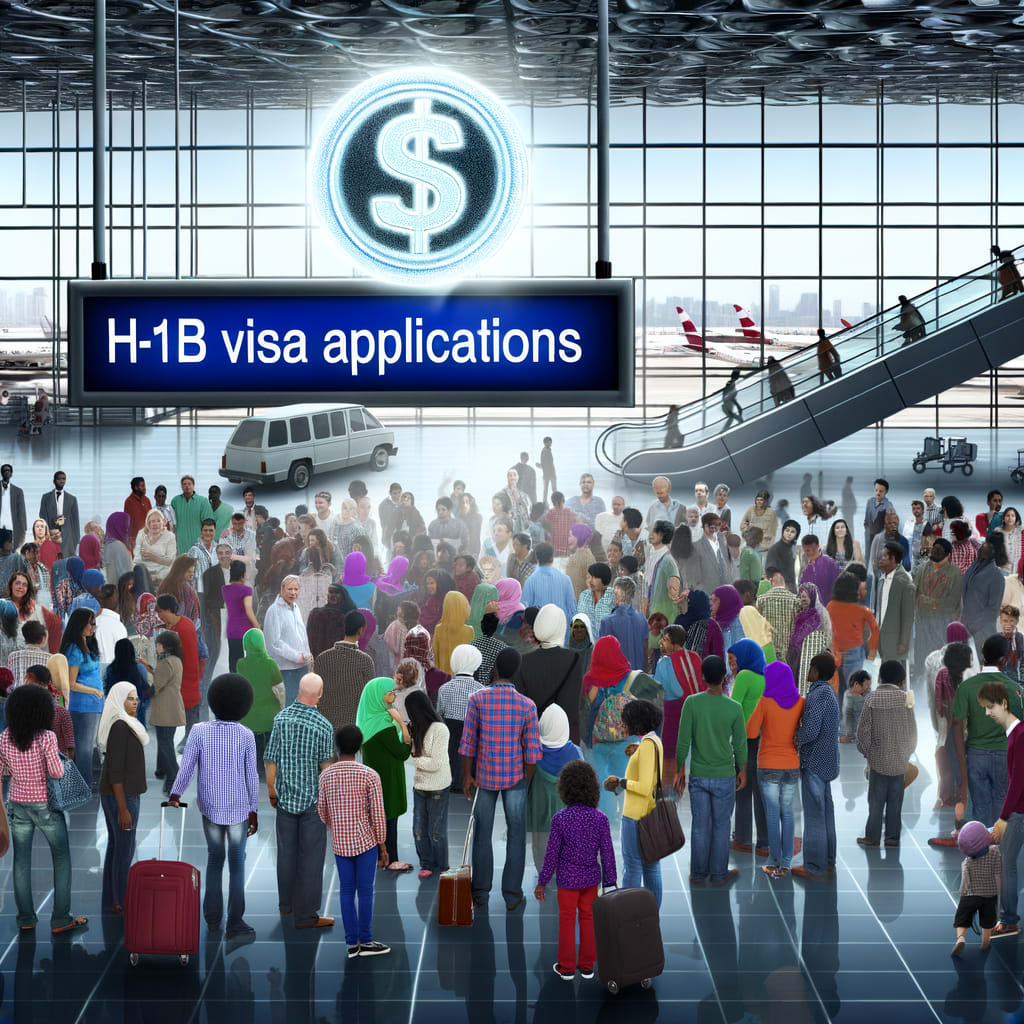Trump's H-1B Visa Fee Hike Sparks Global Concern
U.S. President Donald Trump's recent proclamation requiring a $100,000 fee for H-1B visa applications has prompted a wave of concern and confusion around the world. Critics worry the move could disrupt families, block foreign workers from U.S. jobs, and even hurt U.S. economic growth.
Background
The H-1B visa program, extensively used by tech companies, allows U.S. employers to hire foreign workers in specialty occupations. In a sudden and drastic change, the Trump administration announced a one-time $100,000 fee for new H-1B visa applications, a move perceived as an attempt to encourage companies to hire more American workers.
Key Developments
In response to the announcement, tech companies and banks worldwide rushed to ensure their employees were not adversely affected. Urgent memos were dispatched, advising employees to return to the U.S. before a deadline of 12:01 a.m. U.S. Eastern Time Sunday, in order to avoid potential immigration complications.
The policy change, which was initially reported to be an annual fee, was later clarified by a White House official as a one-time fee that applies only to the petition
for new visas, not renewals or current visa holders.
Implications and Reactions
The fee hike has sparked widespread dismay and panic among foreign workers, particularly those from India and China. Many were forced to abandon travel plans and rush back to the U.S., likening the chaos to the distress caused by the Covid-19 pandemic.
India's foreign ministry warned of potential humanitarian consequences, stating that the fee hike could disrupt families. Economists also warn that this move could hurt U.S. economic growth, as big tech companies heavily rely on these visas to hire staff from overseas.
India, a significant beneficiary of the H-1B visa program, may face significant disruption to its $280 billion IT services sector. However, it is also suggested that the U.S. risks losing skilled workers who have helped build the Silicon Valley and hospitals.
Current Status
Despite the confusion and concern, the policy remains in effect, with the potential to rewrite the rules for a decades-old model underpinning much of the world's technology. The impact on the global tech industry, economies, and individual lives is yet to be fully understood.
As the world grapples with these changes, the focus remains on the potential humanitarian and economic implications of this policy shift.

